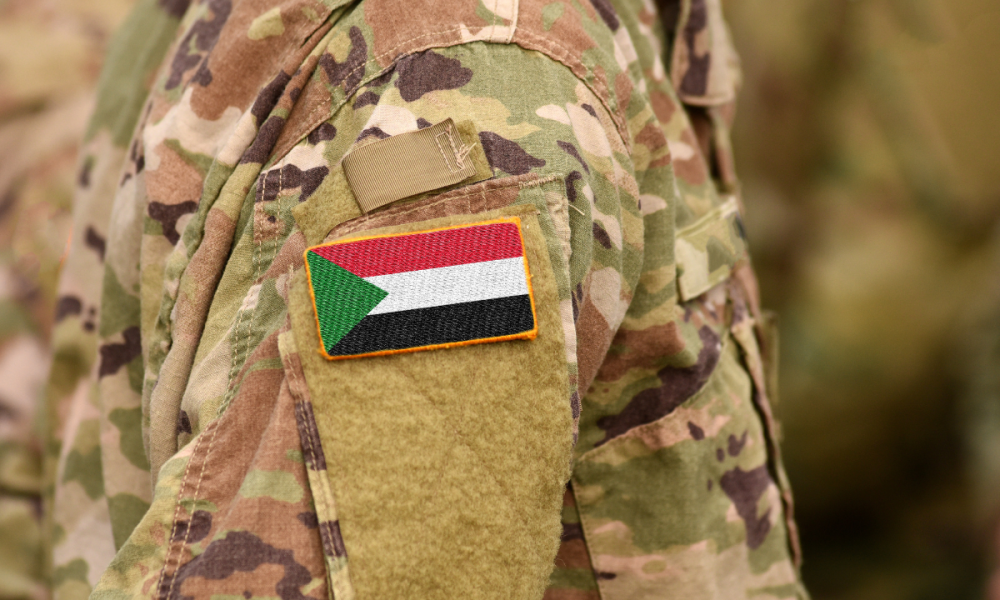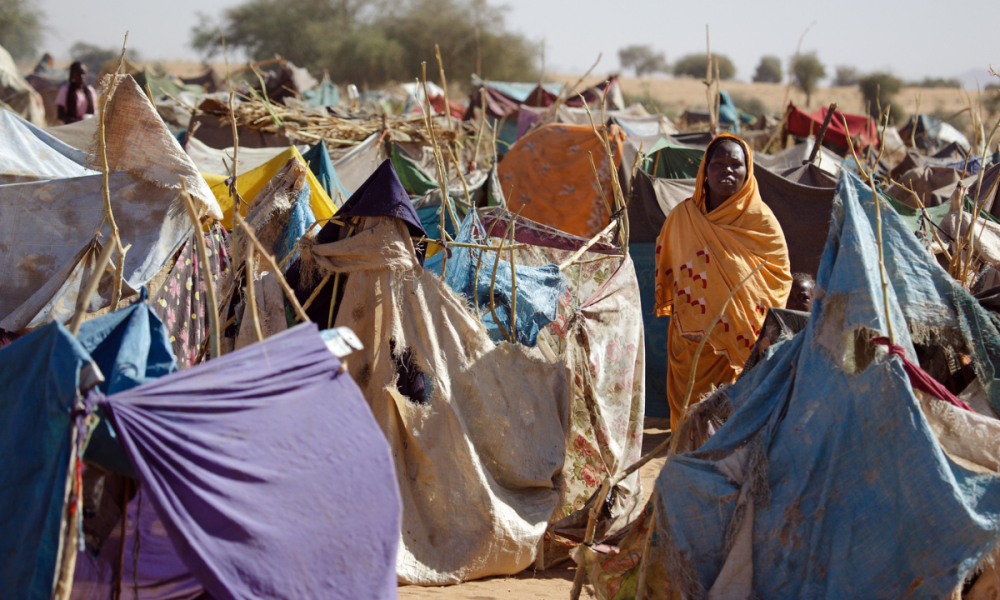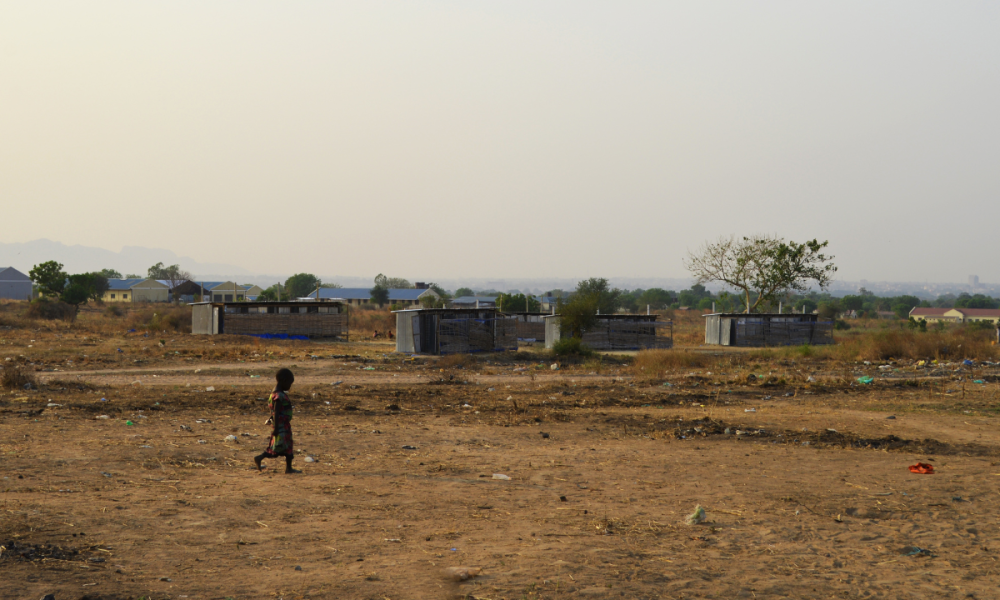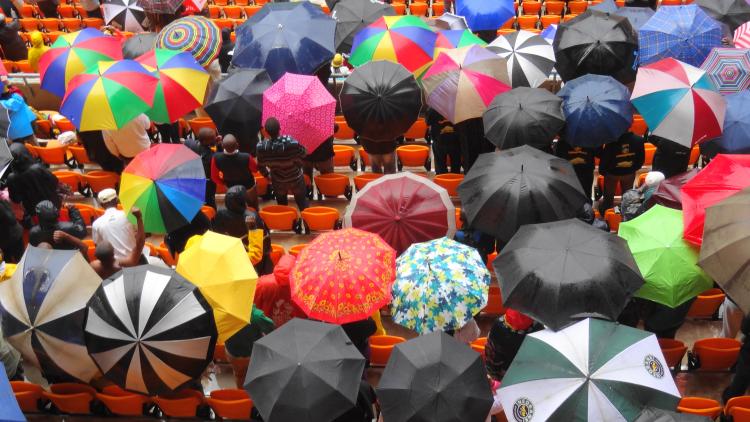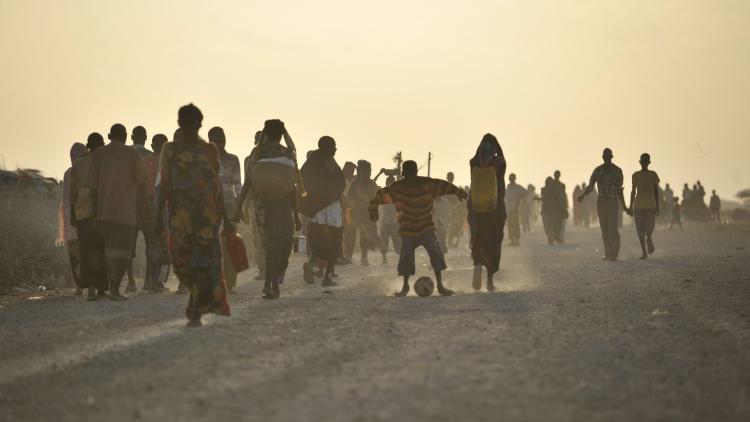Sudan's catastrophe: A long history of failed responses to structural and direct violence
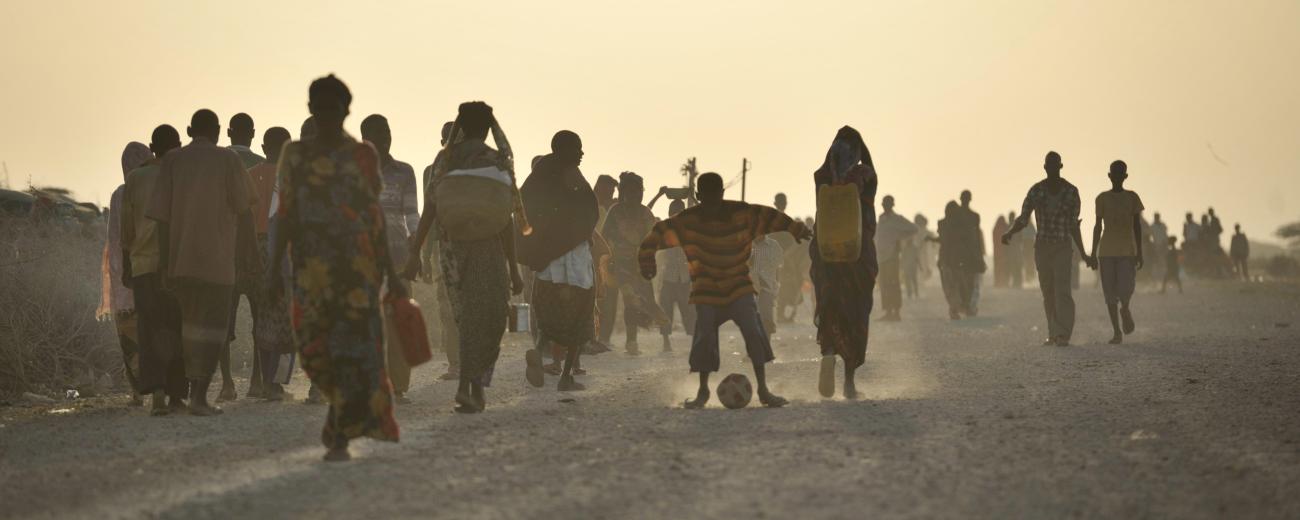

This blog was co-authored by Dr Susanne Jaspars and Professor Lutz Oette.
The making of inequality, war and famine
The current crisis in Sudan has deep roots. Seemingly erupting suddenly, it has in fact been a long time coming. Sudan is a highly unequal country – socially, politically, and economically, along geographical, ethnic and class axes. Power and resources have been concentrated within a central elite, whereas others are unrepresented and excluded from national political and economic institutions. In the last three decades, a military-security-industrial complex has controlled key economic resources (production, trade, business, fuel, gold). Those who form part of it have benefited immensely. In parallel, food insecurity and famine in Sudan’s peripheries has been common since the mid-1980s, due to war, drought, as well as political and economic marginalisation. In some ways, it is precisely war and famine that has yielded benefits to central Sudan’s elite. David Keen’s analysis of the benefits of famine remains relevant today. In Sudan’s exploitative political economy, raiding, displacement and the restriction of food supplies yields benefits from selling grain at high prices while buying cheap livestock, and labour.
Political marginalisation and impoverishment have led to various rebellions, particularly in what is now South Sudan and in Darfur, but also enabled government use of a militia strategy to suppress it. Economic crisis in the 1970s and 1980s (in part due to agricultural policies, and land appropriation) left many rural populations impoverished. Successive governments concentrated commercial production in the centre, with labour coming from the peripheries. Nomadic or pastoral populations lost grazing land and rarely received state services, making them amenable to government support for raiding and looting as part of militia tactics. First came the use of Arab nomadic groups from Kordofan to fight a rebellion in the South, which later became the model for suppressing the rebellion in Darfur. The current Rapid Support Forces (RSF) grew out of such a militia, the notorious Janjaweed, which have been implicated in widespread destruction, killings, displacement, and rape in Darfur.
The failure of international aid
Aid, rather than serving as a means to build a sustainable system, and food aid in particular, has become part of Sudan’s exploitative political economy. It has been diverted to government (and its supporters) or soldiers, and restricted to maintain high food prices – as part of counter-insurgency but also for profit. Traders and transporters used in aid operations largely acted in their own interest. Little food aid reached intended beneficiaries, apart from during the initial phase of the Darfur humanitarian operation in 2004-5. However, even then, it also led to a massive expansion of Khartoum-based companies.
Furthermore, international aid has usually been humanitarian aid which could not address the grievances of those who have been marginalised, and could not address inequalities. In fact, it has reinforced them. Invariably, people have been left to their own resources to survive. For many, conflict, persecution and neglect, has forced displacement and migration – which from 2014 onwards (just after the establishment and destruction wrecked by the RSF) has included migration to Europe.
The rise of the RSF and the current conflict
By participating in the overthrow of Bashir, the RSF became a key part of the government and secured control over rural production, transport and trade. Sudan’s 2019 popular uprising subsequently tried to dismantle the military-security-commercial complex that controls the country’s resources. The potential loss of military control of key companies contributed to the October 2021 counter-revolutionary coup, and to the conflict between SAF and RSF from 15 April 2023 onwards.
In Darfur, power relations and conflict have shifted according to the politics in Khartoum. Early in the conflict, Arab groups from whom President Bashir recruited his militia occupied land from which they had displaced others. From 2020, as part of the failed Juba Peace Agreement, the displaced (usually associated with the rebellion) are entitled to return to that same land. The 2021 military coup shifts power back again, because of the role of the RSF (formed from Arab militia) in the new military government – all of which has contributed to renewed attacks and displacement in Darfur. The 2023 conflict between RSF and SAF in Khartoum, has led to an all-out bonanza of destruction and looting in Darfur – largely linked to the RSF - in particular in West Darfur.
The failure of external political intervention
Sudan has for years been the focus of intense international engagement in response to armed conflicts, serious human rights violations and political transitions. External political interventions have, with few exceptions, failed to address the demands and aspirations of the Sudanese people for peaceful, participatory and democratic processes. Worse, governments and institutions, such as the European Union (EU), have chosen to cooperate with the then Sudanese regime to suit their own policy objectives, such as migration control, euphemistically called better migration management, in the Khartoum Process, launched in 2014. This process helped enormously strengthen the role of the RSF, which was put in charge of (violent) border controls, as a powerful and influential force in Sudan.
Peace-making has, paradoxically, fuelled conflict. Based on the template of the 2005 Comprehensive Peace Agreement, peace processes rewarded violent actors and perpetuated a politics of violence, instead of bringing the political transformation ostensibly aimed for. This logic of engagement has again been in evidence after the 2021 coup, which had confirmed the non-democratic stance of the military component of the Sovereign Council. Instead of firmly challenging these actors, and taking seriously the analysis and demands of democratic forces in Sudan who warned against this course of action, policy-makers sought to strike a deal with the very same ‘practitioners of violence’. The misguided Realpolitik, which essentially treated the revolutionary demands of freedom, peace and justice as ‘unrealistic’, has now been exposed as the costly fallacy it always was.
An extreme humanitarian crisis
Even before the current fighting, Sudan was experiencing not only a political but also an economic and humanitarian crisis. More than 15 million people in Sudan were in need of humanitarian assistance in early 2023, including still 3 million displaced in camps in Darfur. The worst affected populations in early 2023 were in conflict areas such as Blue Nile, Kordofan, Darfur, and within these protracted IDPs, and those living in areas of marginal production. The situation for all these groups will worsen further; in part because of the cessation of humanitarian aid, casual labour will likely be reduced, and travel for farm work even less safe. In Darfur, looting, attacks and destruction have created new needs and displacement. With banks closed, mobile networks patchy, food supplies from other parts of Sudan likely hindered, aid modalities will need to be reviewed (before this latest fighting many IDPs in camps in Darfur were receiving cash through smart cards or mobile banking).
The nature and scale of the humanitarian crisis in large urban populations in or near Khartoum is new, although millions of migrants and labourers have lived precariously in the city for a long time. Like IDPs in Darfur, those dependent on precarious daily labour now have no work and no income. Market prices are skyrocketing. Urban populations have historically been excluded from international humanitarian operations which means the UN and INGOs have little experience in addressing an urban humanitarian crisis.
The role of resistance committees, in politics and in service provision, may be the only positive thing right now. Over the last few years they have shown themselves adept at providing different forms of aid in Khartoum (during the Covid pandemic, during earlier episodes of fighting), and in Darfur, they worked to make relief committees in IDP camps more accountable.
What are some of the lessons for international actors to be heeded, listening to the voices from Sudanese democratic actors and analysts?
First, there must be no support for military actors, including not allowing them to be part of any political transition. Both the army leaders and the RSF have crossed the Rubicon; they must be deterred and disabled, by means of sanctions, from sustaining violence, and be held accountable for serious violations of international human rights law and international humanitarian law amounting to international crimes. International actors who are serious about establishing democratic and rule-of-law institutions in Sudan must not compromise if not altogether frustrate these goals through their failed peace-making and political transition formulas.
Second, addressing the humanitarian crisis as a matter of urgency. This requires an effective cessation of hostilities, as without this, no assessment, no access, and no response is possible. For any leeway with the fighting parties, the international community needs to develop a unified position on humanitarian response. The opening of safe havens is one particular urgent need. Furthermore, for any humanitarian response to be possible, financial and banking systems need to be restored – which will also reduce current suffering. Water, electricity, connectivity, health care, also need urgent attention. Beyond moving in life-saving aid by any means to start with, funding to Sudanese civil society, including NGOs and the resistance committees needs to be prioritised, and appropriate aid modalities determined: health care, food aid, different kinds of cash transfers? As part of their deliberation, aid agencies need to think carefully about what private sector institutions to engage with, large trading or transporting companies, financial or telecoms institutions, may be best able to overcome current operational constraints but may also have links to the former regime.
Third, in addition to neighbouring countries allowing entry and providing adequate reception conditions, the EU should establish safe routes for Sudanese (and refugees of other nationalities fleeing Sudan) to claim asylum, or at least be granted temporary protection, in case of those escaping the current conflict. The UK should equally provide safe pathways, particularly through appropriate settlement schemes. It must end forcing Sudanese refugees, as has been the case to date, to risk dangerous boat journeys, and (frequently) face inhuman detention and living conditions, if not deportation. The current crisis in Sudan demonstrates the inhumanity of the Illegal Immigration Bill. It will, if anything, further endanger the life and well-being of what are often already highly traumatised refugees. It therefore represents, in the context of Sudan, a stark failure of solidarity with Sudan’s people; accusations of delayed, selective and limited evacuations from Sudan and the lack of provision of humanitarian aid reinforce this picture.
To discharge its responsibility towards the Sudanese people, the UK should grant Sudanese asylum seekers already in the country asylum immediately (as most of them will be accepted in any case). The UK should also facilitate wider family reunion, particularly on humanitarian grounds, so as to avoid families being artificially split, as reportedly happened in the context of the evacuation flights, and exposed to suffering in what are already extremely difficult circumstances.
About the authors
This blog was co-authored by Dr Susanne Jaspars and Professor Lutz Oette.
